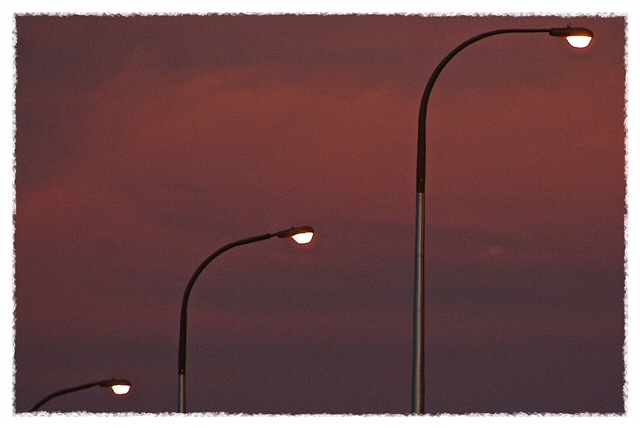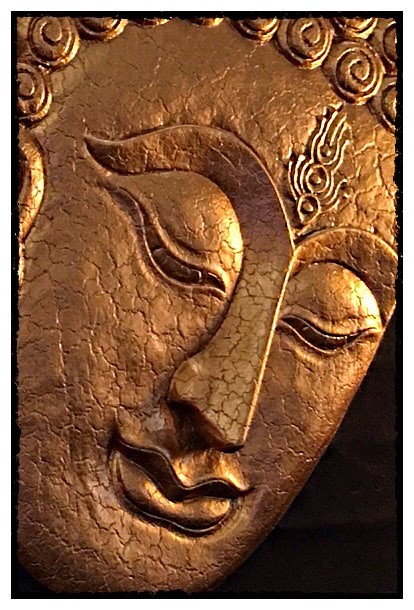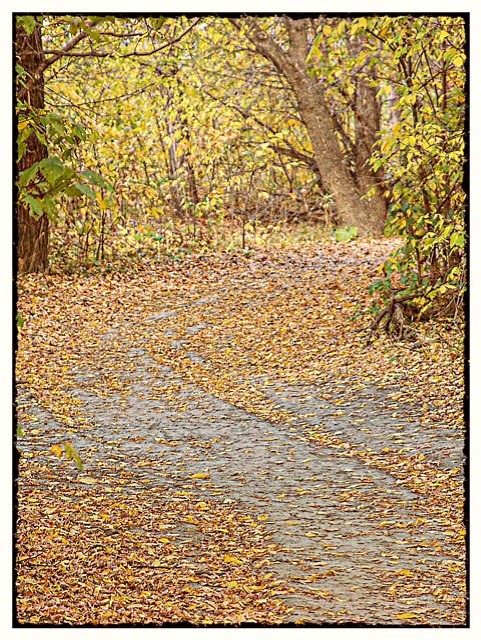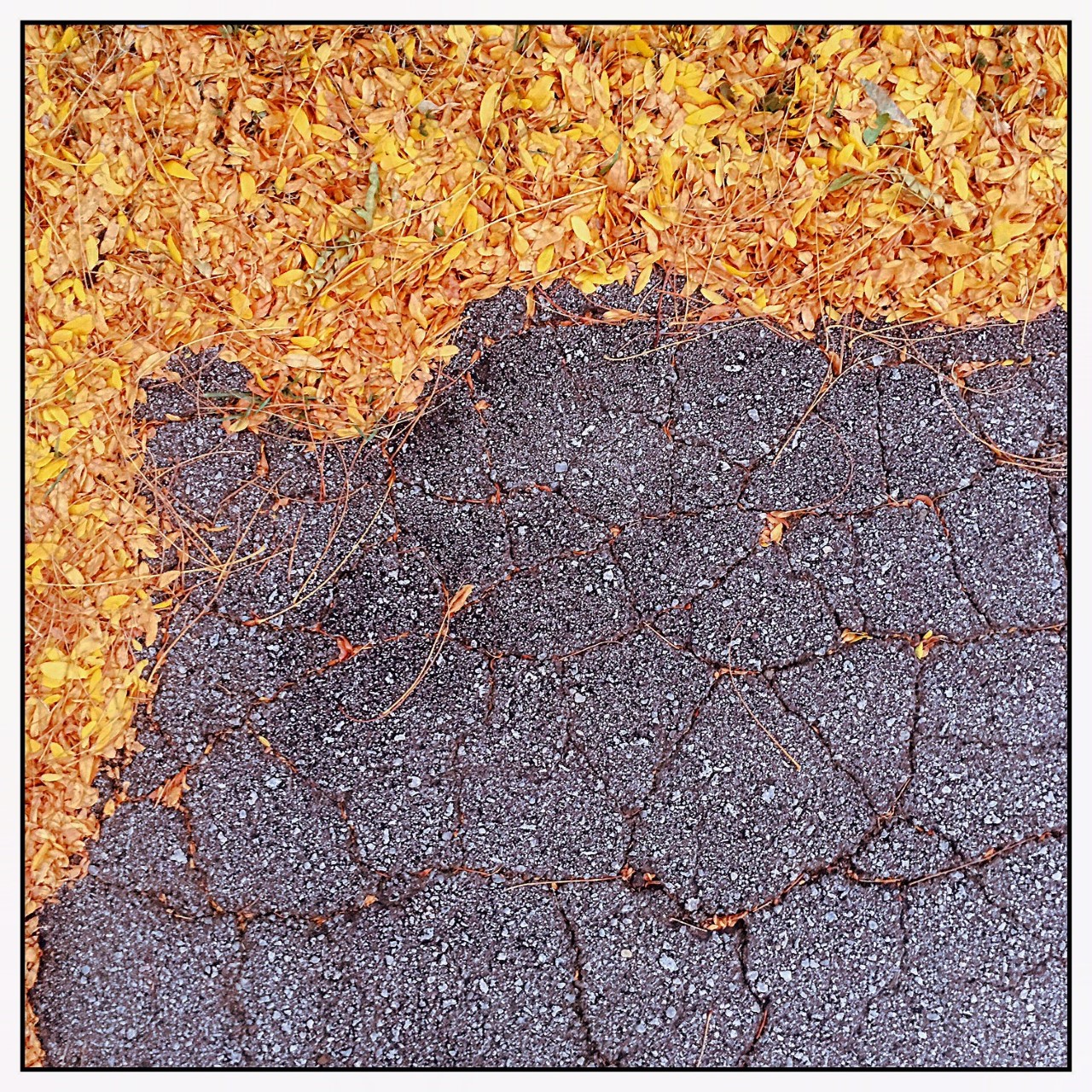Last week, or last night, or the one before, the
mind-numbing silence raging above sirens, a lyric, or
spouse’s snore, a greater noise than a stream of words.
The life of a poet stretched out to the last stanza.
No longer.
News in the mourning. Not an everyday death. Not
a delinquent child, or deviant mind, trying to fit in, nor
the useless corpse bleeding out in a suburban mall
parking lot. Snuffed-out lives, intended target or otherwise,
the guns, the knives.
Collateral damage we hear on the radio each morning,
as we drive to work, as we try to survive another day.
Street crime, sign of the times, taken for granted.
Death, each day, over and over, and over.
Wilful violence.
This death was different, even expected. A musician
who sang for everyman, as he was himself. A father,
a friend, one we would come to know because his art
allowed more. It went further. He found a purpose
in his calling.
Who will now speak for a generation stuck between
nostalgia and this undefined future. Who will soothe
heaving hearts with the melody required. Illusions
of someday. Each day. Whether we know it
or not.
Cries of anguish above streetlights, beyond sidewalks
littered with deceit and dog shit, or forests brimming
with autumn’s glow. The final hours yet to show as moon
glow, stardust and daily drama, mix with the harsh realities
of hatred.
Undisputed ignorance clashes with brittle indifference.
You can say, and I will believe, this world of violence
has become an extreme. Yet it does not take away from
the efforts to sustain; to fill our lungs with the promise
of another day.
We tolerate as we try, complicit in persistent existence,
to continue moving forward. We all brave on, each
waking hour, defying the only true certainty known
in this life. Death awaits. May we be blessed to
greet it kindly.
©2017 j.g. lewis
-
Persistent Existence
-
Mind The Time
Meditation, the art or the practice, is simply not working for me.
I have tried; damn I’ve tried, but as I sit, as I try to silence the mind and find this eternally elusive stillness, I often end up thinking my time spent meditating is unproductive if not counterproductive.
I try.
I turn on the salt lamp, light a candle (sometimes), burn incense (more than a lot) turn off the music or the radio, and try to tune out all that surrounds me. Sometimes on the floor, other times in a chair or bench, I sit with my thoughts – the profound, the profane, the questionable and the mundane – and try to channel my mind towards a place of purpose.
Of course I have a mantra, a gift I received when I was about 17, and of course I use it. And for a while it provides a focus.
For a while.
Then as I’m sitting as calm as I can be, another thought; a greater thought or a deeper thought (a random thought) pulls me away from my intended silence and I’m no longer sitting passively. Perhaps the interruption is a reflection of the day, or a scene from last winter, or a passage I read ages ago, a vision of Joni Mitchell, or any number of people or memories that travel through my headspace, and my intention has suddenly been hijacked.
My meditation turns into 15 minutes (more or less) of sitting and staring at a smouldering candle. I get down on myself, for this is time I could be using any number of ways. I’ve got stuff to do, things to write, or commitments to tend to.
There’s the regular stuff to take care of, finding time in between work and words, and sleep. Of course I’ve got to find time for exercise, and to eat, and to tend to the people you mutually rely upon to keep life on its fulcrum.
So my meditation becomes more like incidental contemplation. This frustrates me, more than anything, because I’m not sure I want my attempts to meditate to turn into one of those things I sort of leave behind (I’m a Gemini; we do that). I’ve got a beautiful set of fairly-new Tarot cards I once saw a purpose in, and I studied the cards with great intensity (as Geminis tend to do) and they now look nice on the book shelf. They sit idle.
That’s not like me.
I’m impatient. I’m not one to sit still, I never have been. Even in yoga, I have trouble with the extended savasanah in the middle of the class, the break where you are supposed to let thoughts flow through you like your breath. I can’t. There’s always something else on my mind, even just the next posture.
I had tried transcendental meditation years and years ago. I remember very little, except my mantra.
I do think, regularly. I contemplate, foster ideas, and compose thoughts that grow into poetry, or essays, or excuses.
I have even developed a practice at the end of the day where I will lay in bed, breath consciously, and take internal inventory, slowly allowing the thoughts to slow to a trickle. Some people may simply call this falling asleep, but I believe it is more purposeful. I believe I’m actually emptying my mind so I may find stillness, and – insomnia be damned – perhaps enter the most meditative state of the day. That’s my rationalization, and I’m sticking to it.
But meditation, the sitting-cross-legged-and-sitting-totally-still-type-of -meditation, is not working for me. Maybe I’m not cut out for this kind of inner peace. Maybe just sitting with volume of poems is enough for me to calm my mind for a stanza or too. Maybe letting my head follow the flow of Mahler, or Kernis, or any one of a number of Yo Yo Ma compact discs is enough to relax me.
Maybe this weakness, this inability to settle right down, is not a weakness, but a strength. I just need to fully figure out how to use it.
I admire those who can, daily, for more than 15 minutes at a time, sit and sort out details, or accept themselves, or think of whatever they do that provides the balance and the bounty they require. I’m not so sure that is me.
I’m feeling it’s not as important to meditate as it is to find a practice that gets you thinking about something. Some people may find a contemplative walk is enough, others may get caught up in the rhythm of long distance running, or the intense concentration of power lifting, or archery.
Give your mind the time to do what it needs to do. Do what you need to do.
Find your peace wherever you are, however you can, and more importantly, whenever you are able to.
©2017 j.g. lewis
-
Maybe
Maybe you need to get away to feel more like yourself.
Perhaps you need to look at something new, with the same eyes,
to appreciate what you see day to day. Everything becomes brighter
when you begin paying attention to the certainty of the ordinary.Maybe time away from the routine you feel closing in
allows you to rethink priorities or plans you may have had.
After some thought some things aren’t half bad, but you need
more perspective. Maybe every day becomes another way.Maybe it’s all too easy to get caught up in the daily news of tragedy
after catastrophe, disasters and disappointment, often worlds away.
Maybe you are better able to deal with the results or ramifications if,
for a day or two, you turn off the noise and switch off the news.Maybe you cannot ignore the world events, but you can tune out
for a while. Can’t you? Maye your humanity with come back to you,
even if you are away only for a day or two. Perhaps to understand
what you hold inside, you might need to get out and look around.Maybe sleeping in an unfamiliar bed allows you to see how
comfortable you can be. The sleep might become deeper, even a
time zone change can rearrange nocturnal habits that have you
sleeping less than you have been, and not as much as you should.Maybe different thoughts can be found just by not thinking about the
same things, or thinking in a different way. Maybe you need to think
from far away to realize what you know, or want to do. It looks different
the second time around by not allowing the then to dictate the now.Maybe the once-familiar food tastes different, or better. Maybe it is
as it always was, but you allow yourself time to savour the flavours.
You might chew on things a little longer, just to see if it is all
you once believed. How are you now sustained by your beliefs?Maybe you need to get to a place that once was home, or find a place
where you feel less alone, or not as isolated from that which you knew.
Perhaps it doesn’t have to be for that long. Even just a day or two, then
maybe when you get back you are better able to deal with all that is you. -
Naturally
We walk like thieves through sunlight and shadows, attempting to pickpocket the colours temporarily brightening our surroundings. Shades of burgundy, fuchsia, and tangerine. More than yellow and orange. Too soon this will be gone.
It is like this each October. Random flowers still trying. Windblown leaves over cracked asphalt, in days soon to be wrinkled and weary brown, and then unnoticeable.
It’s only natural.
Dew is soupy on the windshield in the morning, and soon we shall see our breath.
The aura of Autumn; cooler breezes; short days, and those shorter yet to come.
We move briskly through this season, trying to keep up with the changes, but our soul wants to slow, to even find the stillness we avoid in hectic summers.
We seek comfort in woolly sweaters and the textures of our domain. The scarves and gloves that have been hiding at the back of the closet suddenly appear on the bureau, as if waiting to be pressed into action. We want to enjoy the present, but, habitually, fear the harsh winter ahead. It always is.
Within our homes we organize, knowing we will spend more time inside.
It is nesting. It’s natural. It is our way. We seek familiarity.
Even the music we listen to takes on a different tone. We react, or relate, to more contemplative lyrics, find melody in varied time signatures, or recall certain movements that harbour feelings of family, and justice, and togetherness. Even if we feel alone.
Days move with the voracity of a poem, and we hunger for a place, a person, or a thing.
Something.
Outside trees shed their leaves, and birds say farewell as they follow familiar routes. Naturally.
It is time, and we watch it fly by.
This is us. This is now.
We look around, and we look ahead.©2017 j.g. lewis
-
Changes With Age
As a kid living on the Canadian prairies, Rolling Stone was my bible.
I started reading the magazine — then a newsprint tabloid without staples — when I was 12 years old. Through the years, through the magazine, I learned about culture, counterculture and pop culture, politics, protest, human rights, intellectual debate and, of course, music.
Music was my initial interest in the then-monthly tabloid, but the rag was about so much more. Rolling Stone spoke of real life beyond my sleepy city.
As I grew up, so too did the magazine. The format and size changed, the newsprint became a higher quality stock (stapled) and then it became glossy. As it evolved, the magazine remained under the stewardship of Jann Wenner, who launched the project as a 21-year-old college dropout 50 years ago.
Rolling Stone was the voice of the generation, and through the years the work of Tom Wolfe, Hunter S. Thompson, P.J. O’Rourke and Annie Leibovitz (among so many others) graced the pages. This was the journalism that inspired me to enter the newspaper world.
Last week Wenner announced he was selling his controlling interest in the magazine. A sad day really, but sadly just a sign of the times.
We have all heard, and continue hearing, about the demise of traditional media in this digital age. Newspapers have, for years, been downsizing or dropping off the face of the planet. Magazines are fighting both decreased circulation and advertising revenue.
To remain in the game, family-owned Wenner Media has been ridding itself of its other publications (US Weekly and Men’s Journal) in past years. Last year it sold 49 percent of Rolling Stone to a Japanese music technology company. The once-independent publisher is independent no more.
Now I can romanticize about how much the magazine once meant to me (10 years ago I purchased a CD boxed set containing every issue of its first four decades), but truth be told, I cannot remember the last time I actually purchased a copy off the newsstand. It might have been the issue with Barack Obama’s exit interview (written by Wenner), but chances are I read that story online. I read a lot of Rolling Stone content online, it’s always good, and now always free.
I used to subscribe. Then I just picked up issues when something on the cover moved me. Then some of the artists on the cover, or the stories, stopped speaking to me. At one time I used to base most of my music choices on the publication’s album reviews. That, then, was how we heard about new music. Now when an album is released you can actually listen to some (or all) of the album online before you decide to buy or download.
Times they are a changing, with both music and magazines.
I will still read Rolling Stone articles as they drop into my newsfeed, and this may continue after Rolling Stone is sold. Wenner and his son Gus, the magazine CEO, indicate they wish to stay on after the enterprise is sold, but in this age of corporate control, that’s not how it often works out.
I’ll be less likely to read Rolling Stone material knowing Wenner is not as involved, or as committed, as he once was. It was his vision that guided the magazine, and I liked his view. When he is no longer making those decisions, the Rolling Stone brand will no longer speak, to me, with the same voice.
Maybe this is stating what has already happened. For Rolling Stone, like anything else, is no longer what it was.




